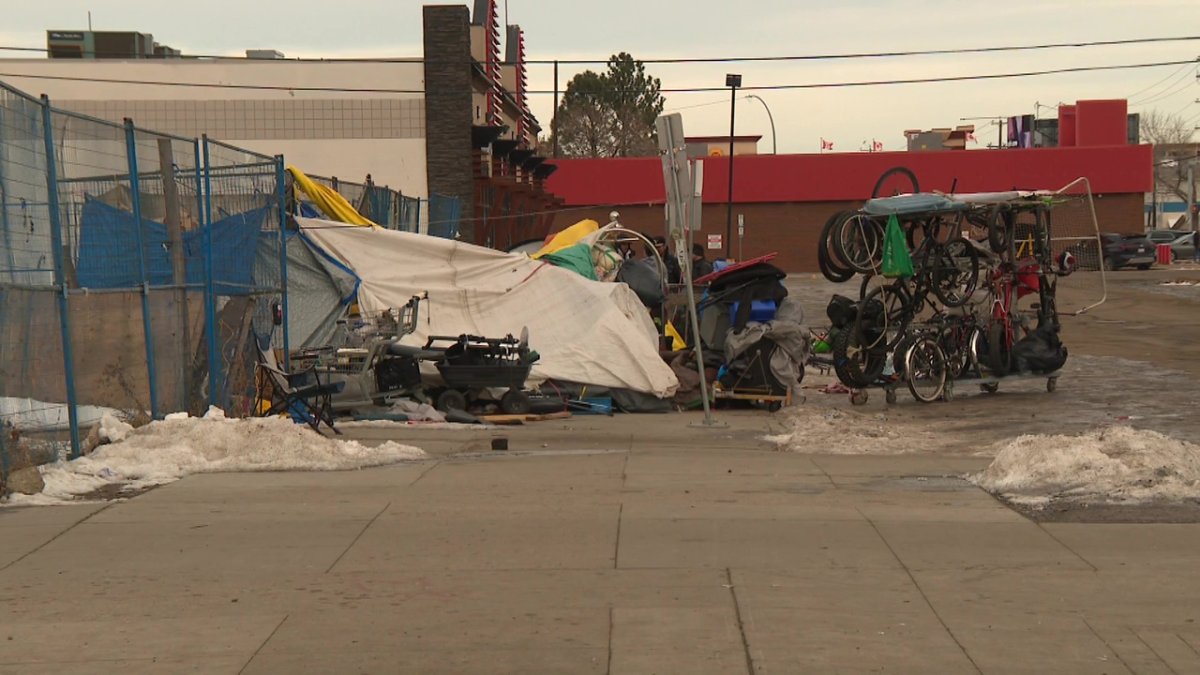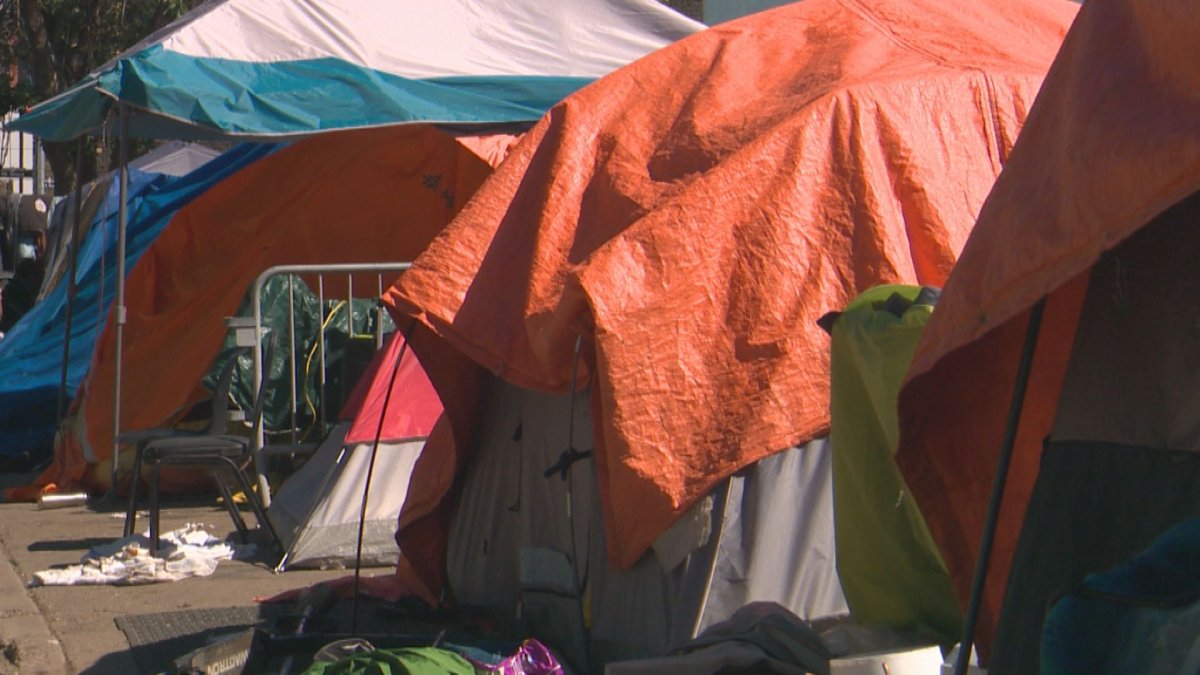Homeless encampments in Edmonton have been appearing in more and more places, such as in Chinatown where tents and makeshift shelters line many streets in the inner city neighbourhood.

Complaints to 311 about encampments have skyrocketed in recent years, but funding and resources haven’t gone up at the same rate.
Administration is recommending Edmonton city council fund an “enhanced” plan for the next two years that it hopes will help more unsheltered people get into housing while addressing safety concerns in encampments.
While administration said the existing plan is a solid foundation to build off of, staff have identified ways to respond more effectively, as outlined in a report that is set to go to councillors at a community and public services committee meeting on April 11.

Encampments exist because there is a lack of adequate housing and capacity in emergency shelters and the addiction and mental health treatment systems, the city said.
The problem has been exacerbated by the pandemic, with calls to 311 about encampments increasing by over 1,000 per cent from 2016.
Meanwhile, the number of people experiencing homelessness increased by 140 per cent in that time to almost 2,900, according to Homeward Trust’s latest count on March 21.
The number of staff dedicated to encampment response went from 15 in 2016 to 69 in 2022, although about one-third of those workers are on temporary contracts using emergency funding that was reallocated from elsewhere.
That’s led to a “pinch point” in getting encampments cleaned up, and in August 2022 there were 480 encampments in the queue for an initial assessment, the city said.
The enhanced plan will need funding, on top of what was approved during budget deliberations at the end of 2022.
The city did not say how much that will cost.
Back in December, city council had approved a service package of $250,000 in one-time funding for this year and $1.17 million each year starting in 2024.

The city said the current system lacks accountability, coordination and goals.
“The lack of clear targets for all parts of the response, combined with the overwhelming demand, can lead to multiple competing demands and constant reassessment of priorities,” the report said.
There is no dedicated team, employee or entity assigned to day-to-day oversight of the response, making coordination of efforts difficult, the city said.
To address this, administration recommends hiring an encampment response coordinator, and it plans to house 100 people from encampments as a learning exercise.
- Buzz kill? Gen Z less interested in coffee than older Canadians, survey shows
- ‘She gets to be 10’: Ontario child’s heart donated to girl the same age
- Bird flu risk to humans an ‘enormous concern,’ WHO says. Here’s what to know
- Canada updating sperm donor screening criteria for men who have sex with men
Longterm, the city said it wants to establish a dedicated administrative hub to oversee all arms responding to homeless camps.
The way camps are assessed is not giving the full picture, the city said.
Currently, the encampments are currently only gauged on the basis of physical risk to safety, including that of people living in the tents or shelters, but addiction and mental health issues are not taken into account.
The city wants to add a social worker to the assessment process and target camps with “high-priority” occupants, according to a list maintained by Homeward Trust, who have been identified as “prime candidates for a more efficient and targeted approach to the housing process.”

Another area for improvement identified in the plan is data integration.
Currently, the city only records the number of complaints and the numbers of camps that get cleaned up — but doesn’t track if multiple calls come in regarding the same encampment.
The city said it also lacks data on the number of people living rough and detailed demographics. This inhibits a deeper understanding of the scale of the issue, making it difficult to find and fix problems within the encampment response process.
Because of privacy laws, the city said it has challenges when it comes to sharing data with partner agencies.
“Outreach workers lack access to real-time information on the locations of encampments and spend a lot of time trying to locate specific clients who they have engaged for housing and other supports,” said the city.
Related, another area for improvement is establishing formal, documented structures for collaboration — instead of what it said are “ad hoc” relationships which exist now.
“Four external organizations and three City branches staff four separate teams that do their best to coordinate efforts through a weekly meeting,” said the city.

Longterm, the city said a possible solution would be partnering with grassroots mutual aid groups in the homelessness serving sector, such as the The Bear Clan Patrol Edmonton Beaver Hills House — a community-based organization that provides food and support to the homeless.
Communication with the public is also a challenge, the city said.
“There is no feedback loop with residents who report encampments via 311 unless specifically requested by the complainant,” said the city. “Park ranger peace officers contact callers when requested but this is labour-intensive work and detracts from their core functions.”
In the enhanced plan, the city wants to try out having a dedicated liaison with neighbours and businesses who could check in during and after the clean-up of camps.
The city says despite the challenges with the existing response, it has succeeded in stopping large encampments, those with a protest element — like Camp Pekiwewin in August 2020 — and a risk of fire.
The enhanced plan is pending approval and will be discussed by council on April 11.

















Comments